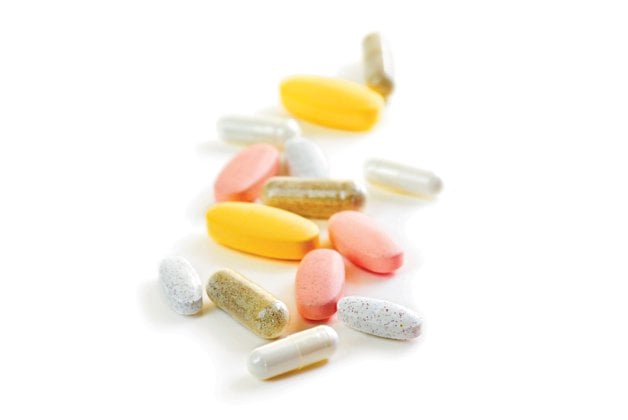
To pop a daily multivitamin – or not? That’s the question not so easily answered.
While some count on supplements to make up for deficient diets, others add multis to healthy eats, aiming to supercharge well-being.
But there are doubters who remind us how the vitamin recommendations of today become tomorrow’s no-nos in the face of new research – a reason why it’s best to stay current on the nutrient pill front.
In the 1980s, for example, beta-carotene supplements were thought to prevent cancer, but later studies revealed their association with lung cancer, cardiovascular disease and early death. Now no one talks about beta-carotene. Just saying….
What the experts say
“The Iowa Women’s Health Study found that the use of multivitamins, vitamin B6, folic acid, iron, magnesium, zinc and copper were associated with increased risk of total mortality when compared with non-use in women. Our findings raised concern about the safety of some supplements used in high doses over a long time. Most studies have found that supplements, although not harmful, do not generally provide benefits. Taking vitamin D, however, is recommended since vitamin D deficiency is common. Also, treating clinically diagnosed deficiencies with supplements is justified.”
JAAKKO MURSU
Institute of Public Health and Clinical Nutrition,
University of Eastern Finland, Kuopio
“It’s prudent for almost everyone to take a multivitamin-multimineral formula. You don’t need one if you’re eating three to five servings of vegetables and two to four of fruit a day, plus a fair amount of whole grains and a good amount of fish. But 97 per cent of the population fails to meet those dietary guidelines. Supplements should supplement a healthy diet, not be dietary substitutes. I think [the Iowa study] is deeply flawed. They didn’t compare women who didn’t take supplements to women who took multivitamins. They compared women who took multivitamins with those who were or were not taking other supplements. A meta-analysis looking at 15 or 20 studies found no increase in mortality. Some people may need supplements besides multivitamins, since they are often not complete. They are low in calcium and many do not contain the current recommendations for vitamin D. Taking a multivitamin is good, and the evidence of any harm is not there.”
JEFFREY BLUMBERG
professor, Friedman School of Nutrition Science and Policy,
Tufts University, Boston
“A multivitamin is precautionary, because all the nutrients interact together. If you’re missing just one of the essential nutrients, it will compromise the action of others. This is why I never suggest just taking vitamin D or omega-3 fats alone. Vitamins and minerals act as catalysts they speed up reactions in the body. Until now we’ve focused on minimal intake of vitamins and minerals to prevent serious deficiency disease. But living a long, healthy life rather than a long life with the last 20 years in misery, requires optimal nutrition, a different focus altogether. Multivitamins are essential for everyone to maintain good health.”
AILEEN BURFORD-MASON
author, Eat Well, Age Better,
Toronto
“I recommend foods, not supplements. I’m not aware of benefits for healthy people, and the evidence, albeit slight, for harm makes me uncomfortable.”
MARION NESTLE
professor of nutrition, food studies and public health,
New York University, New York City
“We conducted a decade-long trial with nearly 15,000 male physicians 50 and up to see whether multivitamins had any effect on cancer or cardiovascular disease. We found an 8 per cent reduction in cancer risk for men taking a multivitamin compared to a placebo, with no effect on cardiovascular disease. Observational studies do not always present the accurate conclusions we’d get from a clinical trial. In the 1990s, observational studies suggested vitamin E could reduce cardiovascular disease. Trials contradicted those studies and even suggested there might be potential harm. This is a cautionary tale. Observational studies have suggested that vitamin D can do everything in terms of disease prevention. We have initiated a large-scale trial to put that to the test. It’s premature to say that everyone should be taking supplements like vitamin D.”
HOWARD SESSO
associate epidemiologist,
Brigham and Women’s Hospital, Boston
Got a question?
Send your Althealth queries to althealth@nowtoronto.com












